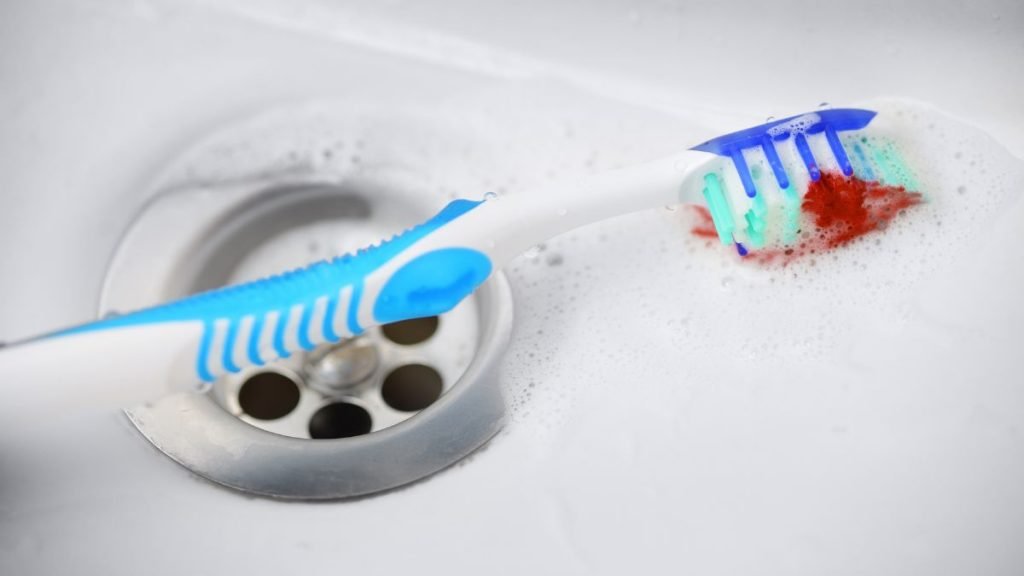Gum Disease
Gum disease is an infection of the gums that can progress to affect the bone supporting the teeth. It is a major cause of tooth loss in adults. It is caused by plaque, a sticky film of bacteria that forms on the teeth. If plaque is not removed, it can harden and turn into tartar. Tartar can irritate the gums, causing them to become red, swollen, and bleed easily. This is called gingivitis. Gingivitis is a mild form of gum disease that can usually be reversed with daily brushing and flossing and regular cleaning by a dentist or dental hygienist. If gingivitis is not treated, it can lead to periodontitis.
Periodontitis is a more serious form of this disease. The gums pull away from the teeth and form spaces called pockets. These pockets become infected. The body’s immune system fights the infection, but this causes the bone and connective tissue around the teeth to break down. As the disease progresses, the pockets get deeper, and more gum tissue and bone are destroyed. The teeth can eventually become loose and may have to be removed.
What are the main causes of gum disease?
The main causes are plaque and tartar buildup, gingivitis, and periodontitis. Plaque is a sticky film of food debris, bacteria, and saliva. Tartar is a hard deposit of plaque that forms on the teeth. Gingivitis is an inflammation of the gums that can lead to bleeding and swelling. Periodontitis is an inflammation of the tissues that support the teeth. It can cause the gums to pull away from the teeth, bone loss, and tooth loss.
- Plague and tartar buildup – Plaque is a sticky film of food debris, bacteria, and saliva. Tartar is a hard deposit of plaque that forms on the teeth. These deposits can cause the gums to become inflamed and can lead to gum disease.
- gingivitis – Gingivitis is an inflammation of the gums that can lead to bleeding and swelling. Gingivitis is usually caused by plaque and tartar buildup.
- periodontitis – Periodontitis is an inflammation of the tissues that support the teeth. It can cause the gums to pull away from the teeth, bone loss, and tooth loss. Periodontitis is usually caused by plaque and tartar buildup.
Is gum disease reversible?
Gum disease is the inflammation and deterioration of the gums and surrounding tissues. It is a common condition that can lead to tooth loss if left untreated. It is usually caused by plaque, a sticky film of bacteria that forms on teeth. Plaque can irritate and inflame the gums, causing them to bleed and swell. If the plaque is not removed, it can harden and turn into tartar, a hard, yellow substance that is difficult to remove. Tartar can further irritate the gums and lead to gum disease.
It is usually reversible in its early stages. By removing the plaque and tartar from your teeth, you can help to reduce the inflammation and damage to your gums. In more advanced stages, gum disease may require more aggressive treatment, such as deep cleaning, antibiotics, or surgery. However, even in these cases, gum disease is often reversible if it is caught early enough.
If you think you may have that, it is important to see your dentist as soon as possible. They will be able to diagnose the condition and recommend the best course of treatment.
How long does gingivitis last?
Gingivitis can last for a few days to a few weeks. If you do not brush and floss your teeth properly, gingivitis can become more serious and last for months or even years.
Can zyn cause gum disease?
There is no definitive answer to this question as everyone’s mouth is different and therefore responds differently to different products. However, some people may find that using a product containing zyn causes an increase in gum disease.
Does vaping cause gum disease?
There is no definitive answer to this question as the research on the matter is inconclusive. Some studies suggest that vaping may be a risk factor for gum disease, while other studies have found no association between the two. More research is needed to determine whether or not vaping is a causal factor for gum disease.
To learn more about oral hygiene and ask your questions, give us a call at 248-650-2440 or visit our dental clinic.
Please visit our Linkedin page for more information.


0 comments on “Gum Disease”